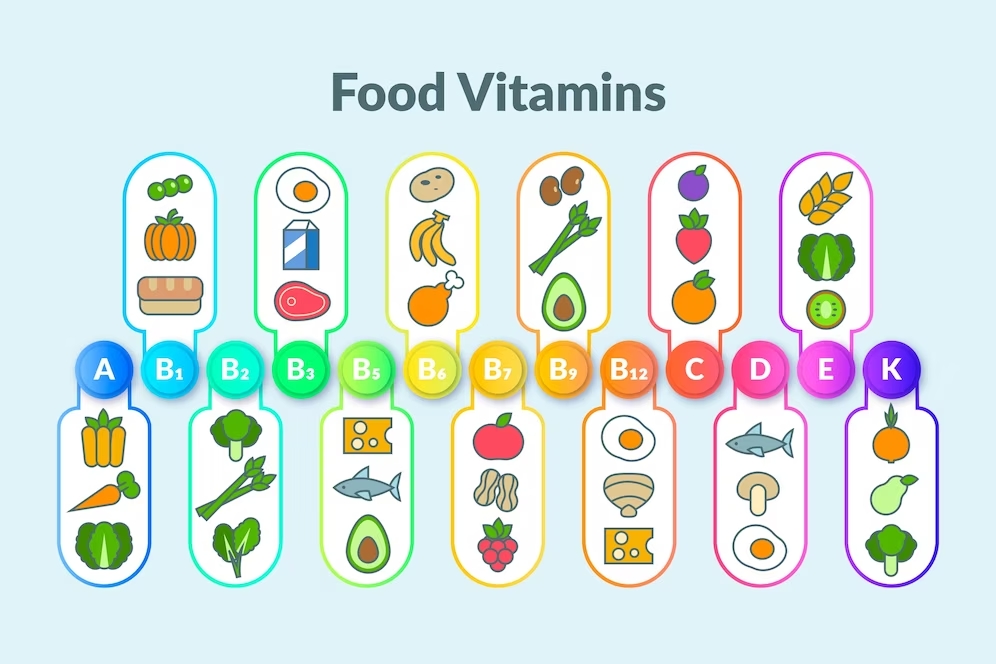In the battle against illness, a robust immune system is your body’s first line of defense. As you navigate your way through life, your immune system continually works to protect you from viruses, bacteria, and other invaders. To support this vital defense mechanism, you need essential vitamins that play pivotal roles in maintaining a healthy immune system. In this article, we’ll delve into the top 5 vitamins that are crucial for immune health and explore why they are essential for your well-being. The question you need to ask yourself is: are you getting enough of these immunity superheroes?
Vitamin C: The Immune Booster
The Power of Vitamin C
Vitamin C is often hailed as the immune system’s best friend, and for good reason. This water-soluble vitamin is a potent antioxidant and is renowned for its immune-boosting properties. It plays a crucial role in the production of white blood cells, which are the body’s frontline warriors against infections. Additionally, vitamin C supports the skin’s defense mechanisms, making it harder for pathogens to enter the body.
Food Sources and Daily Intake
To ensure you’re getting an adequate amount of vitamin C, incorporate citrus fruits like oranges, grapefruits, and strawberries into your diet. Vegetables like bell peppers and broccoli are also rich sources. The recommended daily intake for adults is around 65 to 90 milligrams, but during infections or times of physical or emotional stress, your body may require more. It’s important to note that vitamin C from food sources is unlikely to lead to an overdose, as the excess is usually excreted in your urine. However, high doses from supplements should be taken with caution, as excessive vitamin C intake can lead to digestive discomfort.
Vitamin D: The Sunshine Vitamin
Sunlight and Immunity
Vitamin D, often referred to as the sunshine vitamin, plays a crucial role in modulating the immune system. Your skin produces vitamin D when exposed to sunlight, making sunlight exposure an essential part of maintaining adequate levels. This vitamin is essential for the proper functioning of immune cells. It helps regulate the immune response, preventing it from becoming too inflammatory and causing harm to the body.
Dietary Sources and Supplementation
In addition to sunlight exposure, you can obtain vitamin D from dietary sources. Fatty fish like salmon and mackerel, egg yolks, and fortified dairy products are good options. However, it can be challenging to get enough vitamin D from food alone. If you live in an area with limited sunlight or have limited sun exposure, vitamin D supplements are available. Consult a healthcare provider for guidance on supplementation, as excessive vitamin D intake can lead to toxicity, which can have adverse effects on your health.
Vitamin E: Antioxidant Defender
Antioxidant Power
Vitamin E is a fat-soluble antioxidant that plays a critical role in protecting your cells from oxidative damage. This antioxidant function extends to your immune cells, which are vulnerable to damage from free radicals produced during the immune response. By neutralizing these free radicals, vitamin E helps your immune system function optimally.
Food Sources and Dietary Balance
To ensure you’re getting enough vitamin E, consider incorporating nuts and seeds like almonds, sunflower seeds, and hazelnuts into your diet. A small handful of these nutrient-rich snacks daily can contribute to your vitamin E intake. Additionally, maintaining a balanced diet that includes a variety of foods ensures you get a spectrum of vitamins and minerals, supporting overall health and immunity.
Vitamin A: The Infection Fighter
Vision and Immunity
While vitamin A is often associated with maintaining good vision, it also plays a crucial role in your immune system. This vitamin is necessary for the production and functioning of white blood cells, which are the body’s infection fighters. Vitamin A also helps maintain the health of the mucous membranes that line your respiratory, digestive, and urinary tracts, making it harder for pathogens to enter your body.
Food Sources and Avoiding Excess
You can obtain vitamin A from various food sources, including carrots, sweet potatoes, and leafy greens like spinach. Including these foods in your regular diet can ensure you get an adequate intake of vitamin A. However, it’s essential not to overdo it with vitamin A supplements, as excessive intake can be harmful. Stick to recommended doses to avoid potential toxicity.
Vitamin B: Cellular Warriors
B Vitamins and Immunity
B vitamins, particularly B6, B9 (folate), and B12, are essential for a well-functioning immune system. They play various roles in immune cell production and function. Vitamin B6, for example, is involved in the production of antibodies, while folate is vital for the development of immune cells. Vitamin B12, on the other hand, helps regulate the production of white blood cells.
Food Sources and Nutritional Synergy
Foods like beans, lentils, spinach, and lean meats are rich sources of B vitamins. Including these foods in your diet can help ensure you’re getting an adequate intake. It’s worth noting that B vitamins often work together synergistically, so maintaining a balanced diet is crucial to support overall health and immunity.
Are You Getting Enough?
Assess Your Vitamin Intake
Now that you’re armed with knowledge about these vital vitamins for immune health, it’s essential to assess your diet and lifestyle to determine if you’re meeting your vitamin needs. Keep in mind that individual vitamin requirements can vary based on factors like age, sex, and overall health. If you have concerns about your vitamin intake or immune health, it’s advisable to consult a healthcare provider for personalized advice and recommendations. They can help you determine if supplements are necessary and in what doses.
Your immune system is your body’s frontline defender against illness, and these essential vitamins are the key players that support its function. Whether you obtain them from sunlight, food sources, or supplements, prioritizing your vitamin intake is a crucial step toward maintaining a strong and resilient immune system. Remember, a healthy immune system is your best armor against illness and a vital component of your overall well-being.
FAQs for Immune Health
Can I rely on supplements alone for immune health?
While supplements can provide additional support, they should not be the sole source of your vitamin intake. A balanced diet that includes a variety of nutrient-rich foods is essential for overall health and immunity.
Is it possible to get too much of these vitamins?
Yes, it’s possible to overdose on vitamins, especially when taking supplements. It’s crucial to stick to recommended daily allowances and consult a healthcare provider before starting any supplementation.
What about vitamin supplements for children’s immune health?
For children, it’s best to consult a pediatrician for guidance on vitamin supplements. They can assess a child’s specific nutritional needs and provide recommendations accordingly.
Can vitamins prevent all illnesses?
While vitamins are essential for a robust immune system, they can’t guarantee immunity against all illnesses. A balanced lifestyle that includes healthy eating, regular exercise, and sufficient sleep also plays a crucial role in boosting overall immunity.
Are there natural ways to boost immunity besides vitamins?
Absolutely. In addition to vitamins, maintaining a healthy lifestyle is key to a strong immune system. Regular exercise, adequate sleep, stress management, and good hygiene practices all contribute to robust immunity.
Disclaimer: This article provides general information about vitamins and their role in immune health. For personalized advice and recommendations, consult a healthcare provider.

David M is a seasoned author renowned for his expertise in health tips and homemade remedies. With a passion for wellness, he diligently researches and meticulously analyzes a plethora of online resources, ensuring their credibility. David’s dedication shines through as he curates invaluable information, catering to health enthusiasts.










